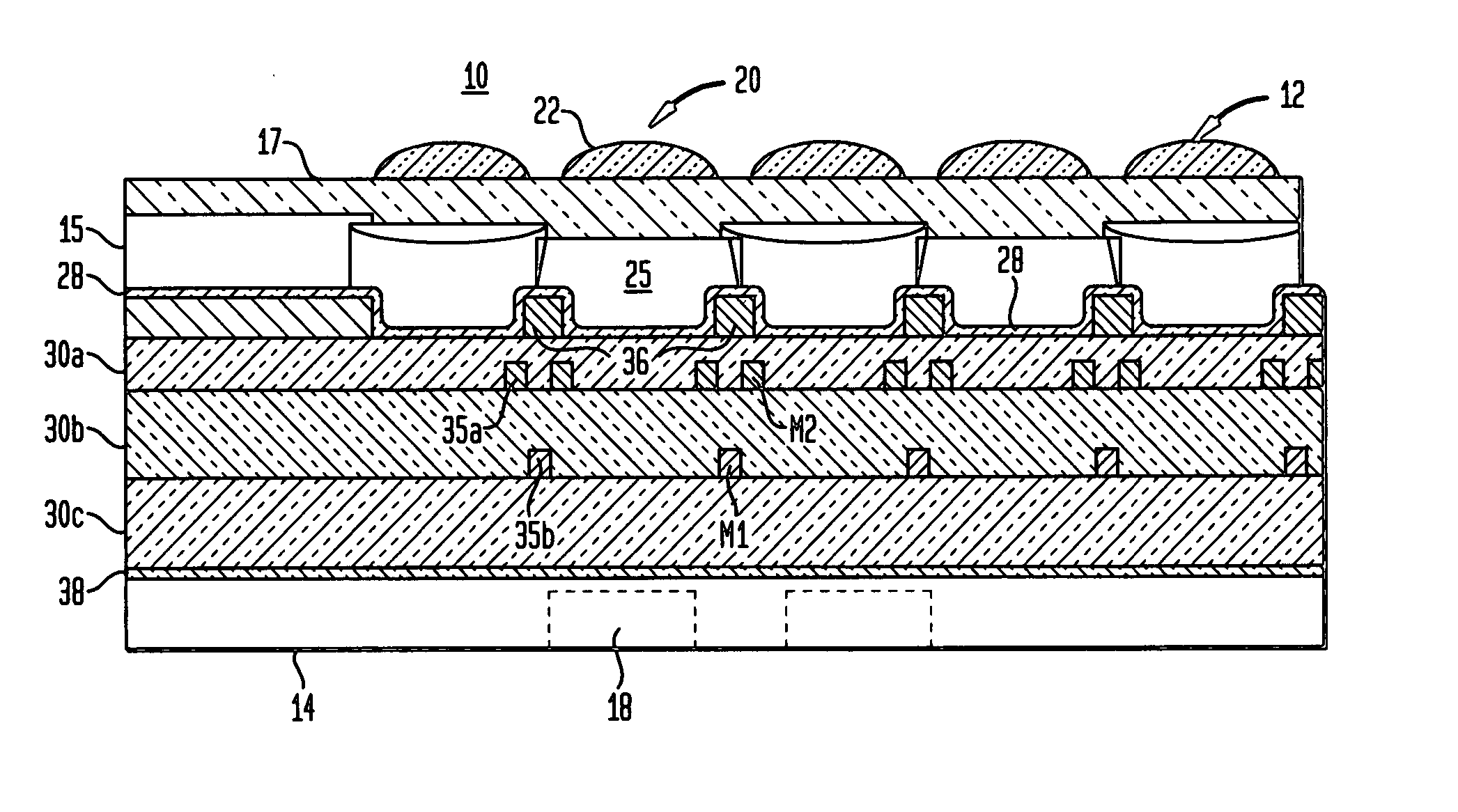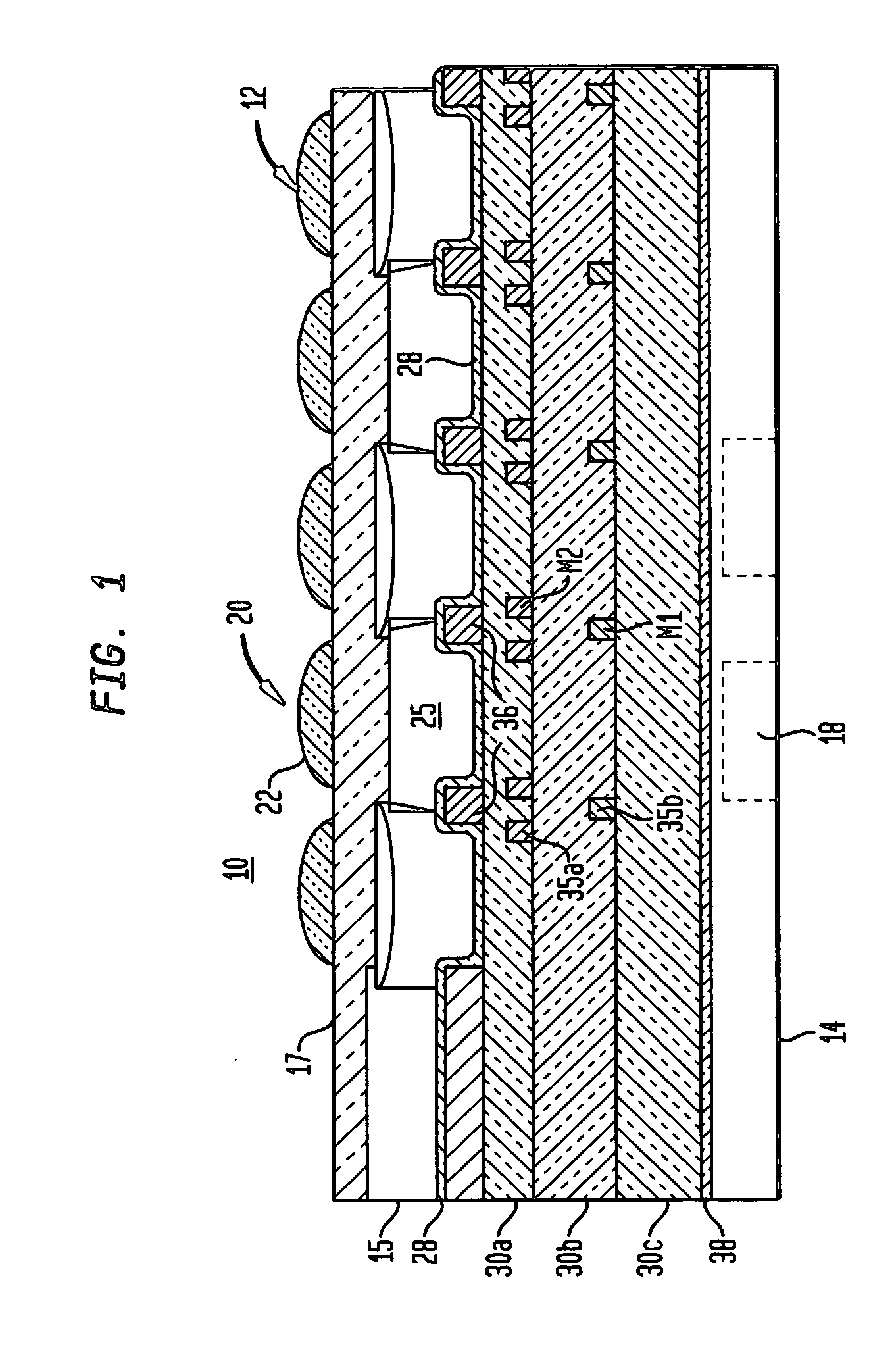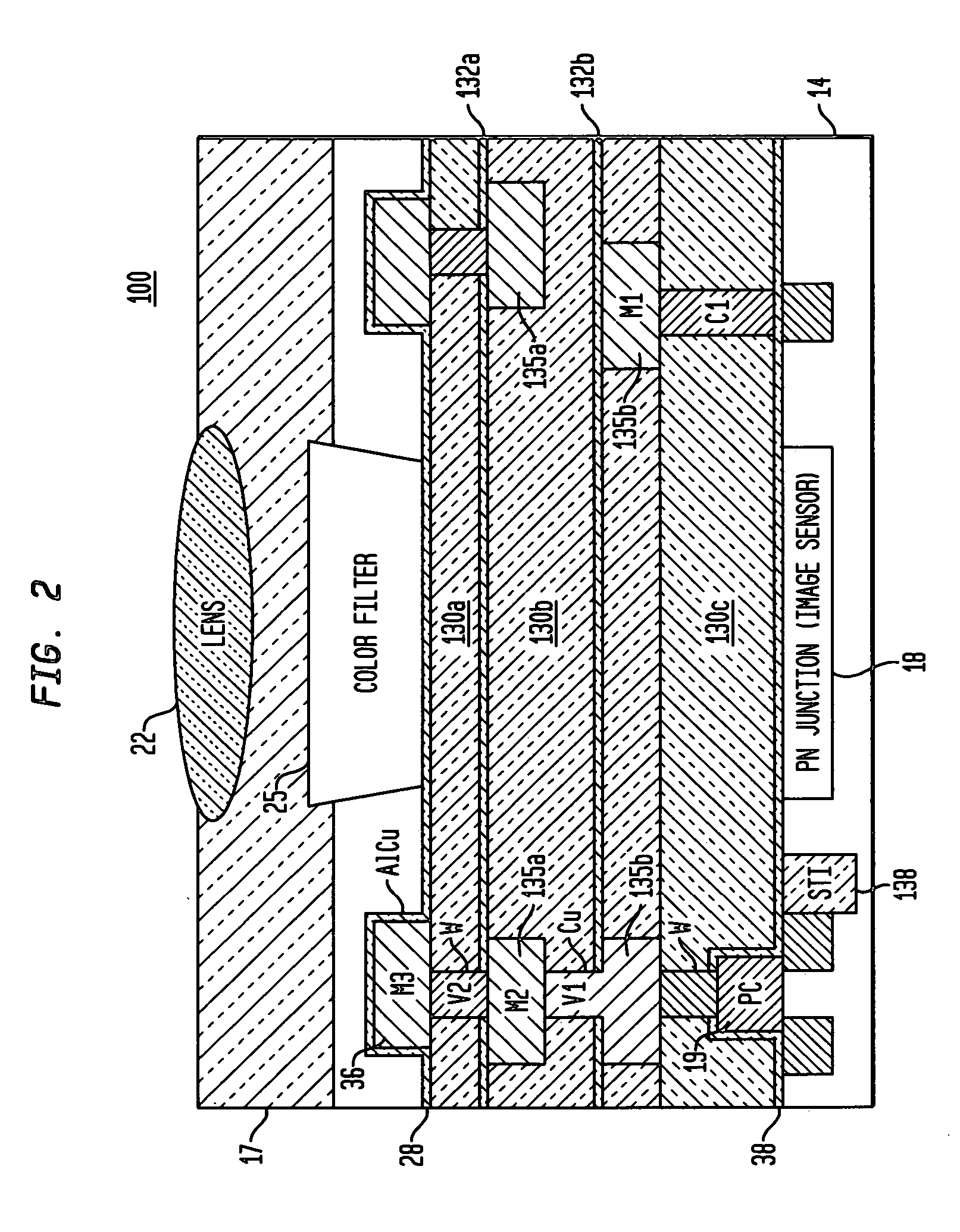A damascene copper wiring image sensor
- Summary
- Abstract
- Description
- Claims
- Application Information
AI Technical Summary
Benefits of technology
Problems solved by technology
Method used
Image
Examples
Embodiment Construction
[0037]FIG. 1 depicts image sensor pixel array 10. As shown, the array comprises a plurality of microlenses 12, each having a hemisphere shape, arranged on a smooth planarization layer 17, e.g., a spin on polymer, that is formed on top of a color filter array 15 enabling formation of the microlens array. The color filter array 15 includes individual red, green and blue filter elements 25 (primary color filters) or alternately, cyan, magenta and yellow filter elements (complementary color filter). Each microlens 22 of the microlens array 12 is aligned with a corresponding color filter element 25 and comprises an upper light receiving portion of a pixel 20. The pixel 20 includes a cell portion fabricated upon a semiconductor substrate 14 portion including a stack of comprising one or more interlevel dielectric layers 30a-30c incorporating metallization interconnect levels M1, M2 Aluminum (Al) wire layers 35a, 35b. Interlevel dielectric materials may comprise a polymer or SiO2, for exam...
PUM
 Login to View More
Login to View More Abstract
Description
Claims
Application Information
 Login to View More
Login to View More - R&D
- Intellectual Property
- Life Sciences
- Materials
- Tech Scout
- Unparalleled Data Quality
- Higher Quality Content
- 60% Fewer Hallucinations
Browse by: Latest US Patents, China's latest patents, Technical Efficacy Thesaurus, Application Domain, Technology Topic, Popular Technical Reports.
© 2025 PatSnap. All rights reserved.Legal|Privacy policy|Modern Slavery Act Transparency Statement|Sitemap|About US| Contact US: help@patsnap.com



